Best Cryptocurrency Software Wallet 2024-2025 for Beginner’s and Advanced
Cryptocurrency software wallets are essential tools for managing digital assets, and as the market grows, choosing the best one becomes even more critical. In this article, we’ll dive into the top cryptocurrency wallet app options for 2024-2025, offering comparisons and tips to help you make an informed decision. Whether you’re a beginner or an experienced user, finding the right software-based crypto storage solution can simplify storing, sending, and managing your coins.
What Is a Software Crypto Wallet?
A software crypto wallet is a digital application that allows users to store, send, and receive digital currency. Unlike hardware wallets, which store private keys offline, software wallets store your keys on a device connected to the internet, offering easy access to funds. They come in two primary forms: mobile and desktop crypto wallets.
The concept of a cryptocurrency wallet app emerged in the early days of Bitcoin as people needed a secure way to manage their assets. Over the years, these wallets have evolved to support more cryptocurrencies, offer wallet encryption technology, and implement robust wallet security measures.
Why Do You Need the Right Crypto Wallet?
Selecting the right wallet is essential for safeguarding your digital assets. The features and security measures a wallet provides can make a significant difference in protecting your funds. A user-friendly crypto wallet is crucial for beginners and advanced users, offering smooth access without compromising private key management. With the right wallet, you also gain flexibility, such as support for multi-currency wallets and decentralized software wallets, allowing you to manage multiple coins on one platform.
Top 7 Best Crypto Software Wallets in 2024-2025 - Comparison
1. Walletverse
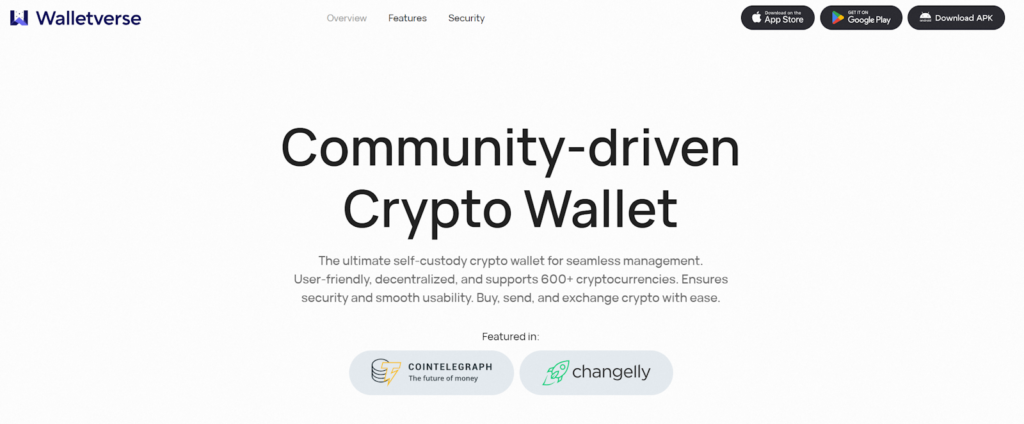
Walletverse is a secure software wallet perfect for beginners and advanced users. It supports over 600 cryptocurrencies, including Bitcoin, Ethereum, and more. With Walletverse, you get multi-currency wallets, integration with Web3 platforms, and easy access to DeFi applications. It is a user-friendly crypto wallet with features like passcode and biometric authentication for added security. Walletverse offers an excellent balance between crypto wallet features and usability, allowing users to buy and sell crypto via Apple Pay, Google Pay, and credit/debit cards. The self-custody model ensures that only you control your assets, making it one of the most secure crypto wallet software options.
Pros:
- Fast app and intuitive design;
- Support for over 600 cryptocurrencies;
- Integration with DeFi and Web3;
- Advanced wallet security measures with passcode and biometric authentication.
Cons:
- Currently available only as a mobile app.
2. MetaMask
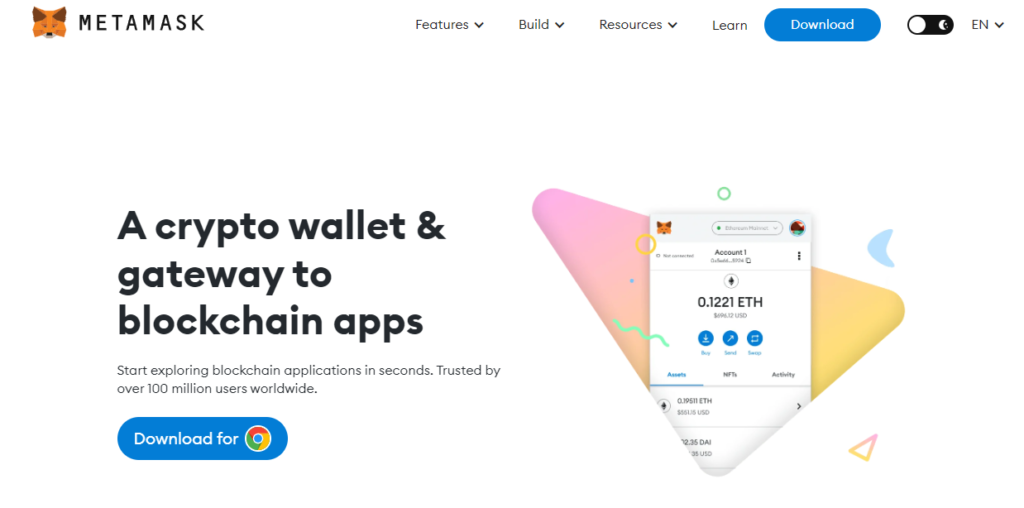
MetaMask is a trendy software-based crypto storage solution known for its browser extension and mobile app. It integrates directly with Web3 applications, allowing users to manage Ethereum-based tokens easily. The private key management system ensures that your assets are protected with robust security protocols.
Pros:
- Supports Ethereum and ERC-20 tokens;
- Direct integration with decentralized applications (dApps);
- Easy to use for beginners.
Cons:
- Limited to Ethereum and ERC-20 tokens.
3. Trust Wallet
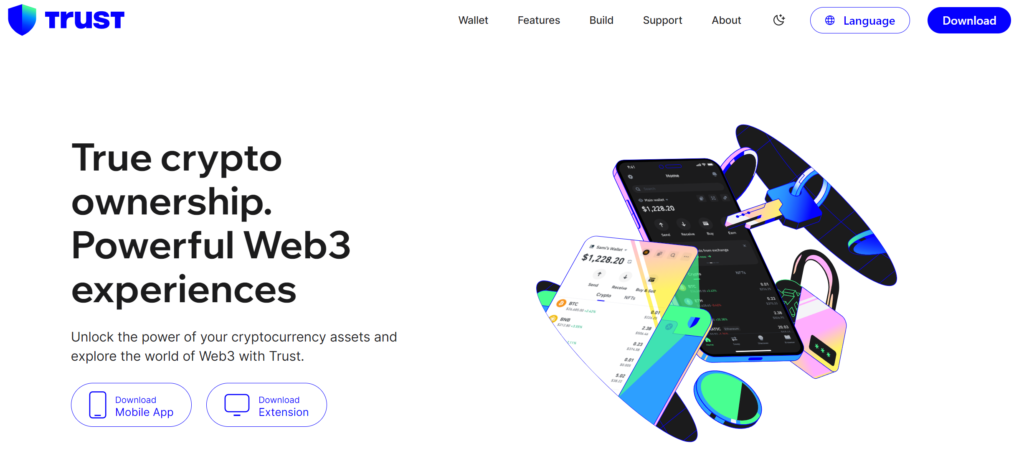
Trust Wallet is a free, open-source, decentralized software wallet that supports multiple cryptocurrencies. With backup and recovery options, it ensures your funds are secure even if you lose access to your wallet. It’s a popular choice for multi-currency wallets and integrates directly with Binance.
Pros:
- Multi-currency support;
- Easy recovery features;
- User-friendly interface.
Cons:
- Lacks advanced security features.
4. Exodus
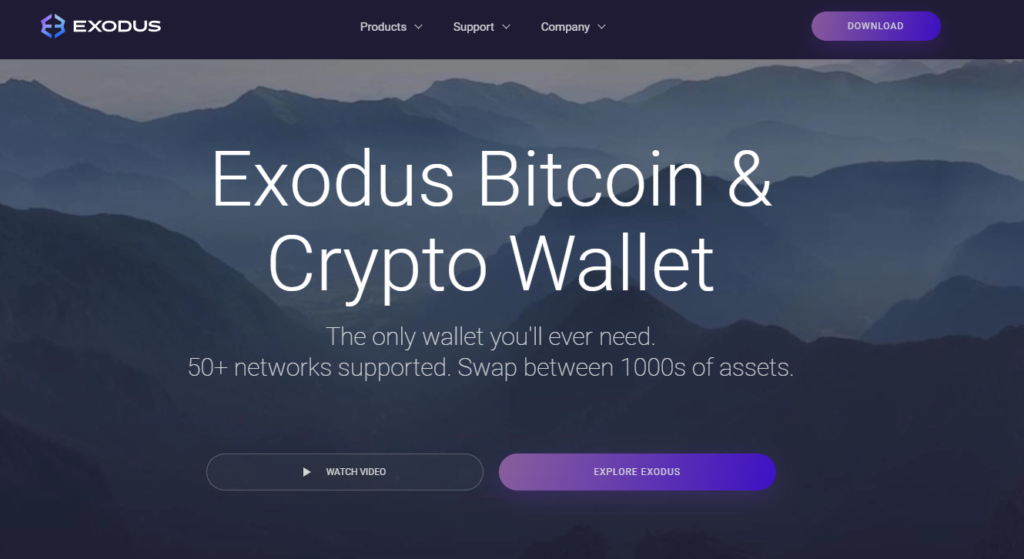
Exodus is a desktop and mobile crypto wallet app that offers an intuitive user interface. It supports various coins and includes a built-in exchange feature. Exodus prioritizes wallet security measures by allowing users to control their private keys.
Pros:
- Built-in exchange feature;
- User-friendly interface;
- Cross-platform crypto wallet support.
Cons:
- Limited advanced security features.
5. Atomic Wallet
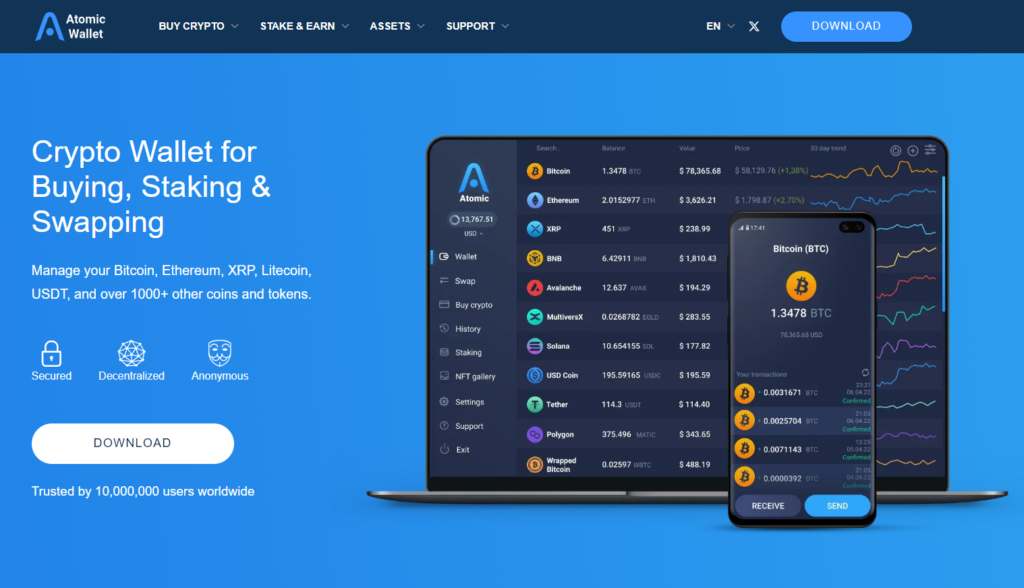
Atomic Wallet is a multi-currency software wallet that supports over 500 coins. It’s known for its secure software wallets and allows users to buy, stake, and exchange crypto within the app.
Pros:
- Supports over 500 coins;
- Built-in exchange and staking features;
- Suitable for both beginners and advanced users.
Cons:
- The desktop app lacks some mobile features.
6. Coinomi
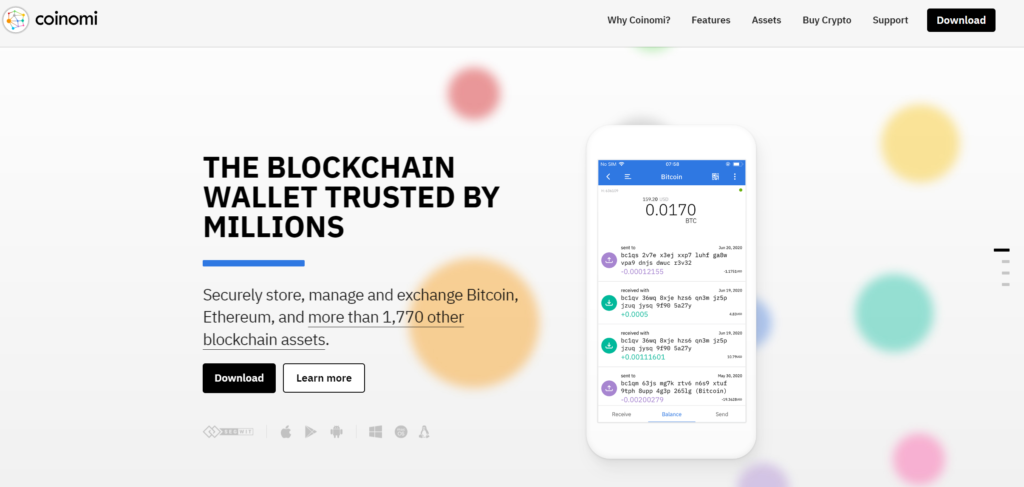
Coinomi is a software-based crypto storage solution that focuses on wallet security measures. It supports multiple cryptocurrencies and offers cold storage vs. hot wallet options, giving users added security for their assets.
Pros:
- Secure multi-currency support;
- Easy backup and recovery options.
Cons:
- The user interface could be improved.
7. Mycelium
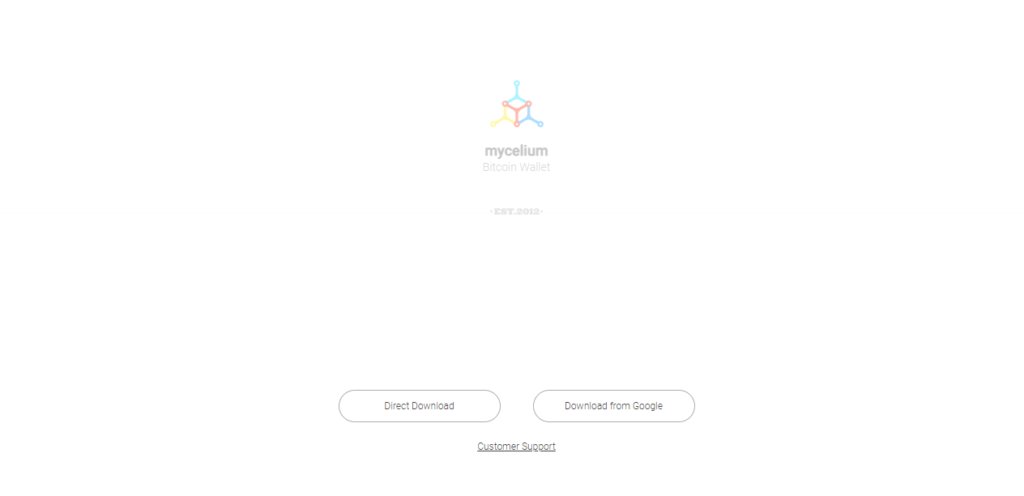
Mycelium is a mobile-only crypto wallet app that offers advanced privacy features. It best suits experienced users because it focuses on private key management.
Pros:
- Advanced security and privacy features;
- Supports hardware wallets for added security.
Cons:
- Not beginner-friendly.
How to Choose Software Cryptocurrency Wallets
When selecting a cryptocurrency wallet app, there are several factors to consider that can significantly impact your crypto management experience:
- Security features. Look for wallets that provide robust wallet security measures such as encryption, two-factor authentication (2FA), and biometric authentication. Ensuring private key management is solely under your control is crucial. A secure software wallet will also offer additional layers like backup and recovery, safeguarding you from potential loss of funds.
- User-friendliness. The user-friendly crypto wallet interface is essential whether you’re a beginner or an advanced user. Some wallets provide a streamlined experience, while others offer more complex features suitable for professionals. If you’re new to crypto, opt for wallets with simple navigation and helpful tutorials.
- Supported cryptocurrencies. Ensure the wallet supports all the coins you plan to use. Some wallets are limited to specific currencies like Bitcoin or Ethereum, while others are multi-currency wallets supporting hundreds of coins. For example, Walletverse supports over 600 cryptocurrencies, making it an ideal choice for those with diverse portfolios.
- Cross-platform availability. Mobile and desktop crypto wallets, allowing you to seamlessly manage your assets across devices, are seen as beneficial, but perhaps not necessary for most users. For instance, while Walletverse is mobile-only, it ensures top-notch crypto wallet features tailored for mobile users.
- Integration with DeFi and Web3. If you are interested in decentralized finance or using Web3 applications, choose a decentralized software wallet that can integrate with dApps (decentralized applications). Wallets like MetaMask excel in this area by connecting directly with various DeFi platforms.
- Transaction fees. Some wallets charge high transaction fees for sending and receiving cryptocurrencies. Look for wallets that provide software-based crypto storage solutions with low or customizable fees, especially for active traders or investors.
- Backup and recovery options. Check whether the wallet offers backup and recovery options in case you lose access to your device or forget your password. A wallet with a robust recovery system ensures you can regain control of your assets without complications.
- Community and support. Consider wallets with an active user community or customer support. Reaching out for help or sharing experiences can enhance your confidence, especially when dealing with complex wallet functions.
Main Types of Cryptocurrency Wallets - Comparison
Understanding the main types of wallets helps you choose the one that aligns best with your usage and security needs:
1. Hot wallets
Hot wallets are always connected to the internet, making them convenient for daily transactions but slightly more vulnerable to hacks. They include both mobile and desktop crypto wallets.
- Mobile wallets. These apps allow you to manage your crypto on the go. They are best suited for everyday use, offering easy access but requiring regular security updates. Examples include Walletverse and Trust Wallet.
- Desktop wallets. These are installed on your computer, balancing security and convenience. Desktop wallets are good for managing more significant sums of crypto as they typically offer more advanced security features.
Pros:
- Easy access and fast transactions;
- User-friendly interfaces;
- Often supports multiple currencies.
Cons:
- Vulnerable to online threats like hacking;
- Requires regular updates for security.
2. Cold wallets
Cold wallets store your crypto offline, offering the highest level of security but less convenience for daily transactions. These wallets can be physical devices or even paper wallets, where your private keys are printed and kept securely.
- Hardware wallets. These physical devices store private keys offline, immune to online attacks. They’re ideal for long-term investors who don’t need constant access to their funds.
- Paper wallets. Paper wallets are pieces of paper with your private keys printed. They are highly secure from online threats but can be lost or damaged easily.
Pros:
- Extremely secure from online threats;
- Ideal for long-term storage.
Cons:
- Inconvenient for regular transactions;
- Risk of loss or damage (for paper wallets).
3. Hybrid wallets
Hybrid wallets combine elements of hot and cold wallets, often allowing users to store their private keys offline while still making transactions online when needed. They provide a good balance between security and accessibility.
Custodial wallets vs. non-custodial wallets
- Custodial wallets. With custodial wallets, a third party (like an exchange) holds your private keys. This is more convenient but comes with the risk that the third party could be hacked or bankrupt.
- Non-custodial wallets. Non-custodial wallets give you complete control over your private keys and funds, as seen in most decentralized software wallets like Walletverse. This type is preferred by most users who prioritize security and ownership of their assets.
Pros:
- Complete control over your assets (for non-custodial wallets);
- Secure private key management (for non-custodial wallets).
Cons:
- Custodial wallets can be less secure due to third-party risks.
By understanding these wallet types and considering your needs, you can choose the best software-based crypto storage solution for your digital assets.
Conclusion
Choosing the best cryptocurrency wallet app for 2024-2025 is essential for securely managing your assets. Whether you’re looking for a secure crypto wallet software or a multi-currency wallet, Walletverse and the other top picks offer something for everyone.
FAQ
Most frequent questions and answers
A cryptocurrency wallet app is a tool that allows users to store, send, and receive digital assets such as Bitcoin, Ethereum, and other cryptocurrencies. These wallets manage your private keys, which are crucial for authorizing transactions on blockchain networks. Different types of wallets include mobile and desktop crypto wallets, hardware wallets, and paper wallets. Software wallets are widely used because they balance security and convenience, providing easy access to your funds while maintaining solid wallet security measures. Depending on their design, they can store one or multiple currencies, and users are responsible for securing their private keys.
A crypto wallet app works by storing your private keys, which prove your cryptocurrency assets’ ownership. When you initiate a transaction, your private key signs it and sends it to the blockchain for verification. For example, if you’re sending Bitcoin to someone, the wallet uses your private key to authorize the transaction and broadcast it to the network. The process can differ slightly depending on whether you use a mobile or desktop crypto wallet, but all wallets essentially serve the same function. Some wallets also integrate with decentralized software wallets, allowing users to interact directly with dApps and DeFi platforms.
The best cryptocurrency wallet app for you depends on your specific needs, but Walletverse stands out as one of the top choices. It is a multi-currency wallet supporting over 600 cryptocurrencies, including Bitcoin, Ethereum, and various altcoins. Walletverse is highly secure, offering private key management features such as passcode and biometric authentication, making it one of the most secure crypto wallet software options. Thanks to its user-friendly crypto wallet interface and support for Web3 and DeFi applications, it’s perfect for both beginners and advanced users. The self-custody nature of Walletverse ensures that only you control your assets, making it a top choice for long-term security and flexibility.
When selecting a software-based crypto storage solution, here are a few key factors to keep in mind:
- Security. Ensure the wallet has strong security measures like encryption, two-factor authentication, and biometric authentication.
- Private key control. Opt for wallets, such as decentralized software wallets, that allow you complete control over your private keys.
- Supported cryptocurrencies. If you hold multiple coins, choose a wallet that supports multi-currency wallets to avoid managing several different apps.
- User experience. A user-friendly crypto wallet is crucial for seamless crypto management, especially if you’re new.
- Backup and recovery. Ensure the wallet offers robust backup and recovery options to restore access to your funds in case of device loss or failure.
- Cross-platform availability. Some wallets offer mobile and desktop crypto wallets, allowing you to manage your assets across devices more flexibly.
Considering these factors, you can find the best wallet to suit your crypto management needs.